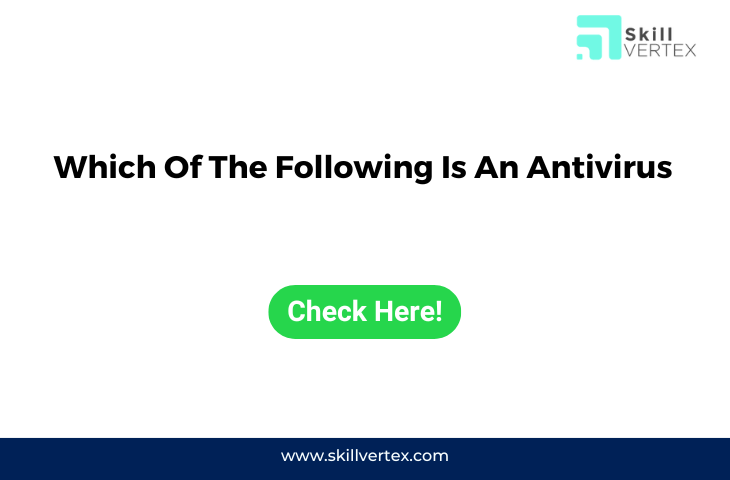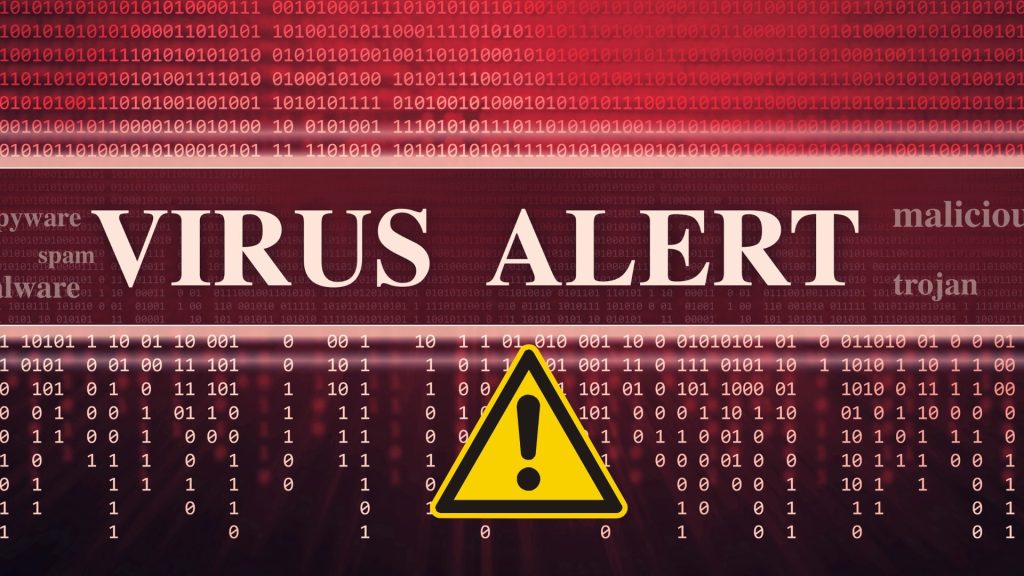Norton, McAfee, Avast, Kaspersky, AVG, Windows Defender and Bitdefender is an antivirus software. It protects computers from malware, viruses, and other security threats.
Antivirus software is essential for maintaining the security of your computer and personal information. Norton, McAfee, Avast, Kaspersky and others the leading antivirus programs, offers comprehensive protection against various cyber threats. It scans your system for malicious software, blocks potentially harmful websites, and ensures your data remains secure.
With the rise of cybercrime, having reliable antivirus software like Norton, McAfee, Avast and Kaspersky is more important than ever. It provides real-time protection and keeps your device running smoothly. Investing in good antivirus software helps prevent data breaches, identity theft, and other cyber attacks. Norton’s user-friendly interface and robust security features make it a top choice for individuals and businesses alike.

Antivirus Software Basics
Antivirus software is essential for protecting computers and other devices from malicious threats. Understanding the basics of antivirus software helps users make informed decisions about which software to choose. This guide covers the fundamentals and the importance of antivirus software in ensuring digital safety.
Which of the Following is an Antivirus Software: What Is Antivirus?
Antivirus software is a program designed to detect, prevent, and remove malware. Malware includes viruses, worms, trojans, and other harmful software that can compromise your device and data. Antivirus software scans files and systems for known threats and uses algorithms to identify suspicious behavior.
Key features of antivirus software include:
- Real-time scanning: Constantly monitors your system for threats.
- Scheduled scans: Allows users to set regular scans to check for malware.
- Automatic updates: Keeps the virus definitions up-to-date to recognize new threats.
- Quarantine and removal: Isolates and deletes detected malware.
Some popular antivirus software options are:
| Software | Features |
|---|---|
| Norton Antivirus | Real-time scanning, firewall, anti-phishing |
| McAfee Antivirus | Scheduled scans, identity protection, secure VPN |
| Avast Antivirus | Automatic updates, password manager, Wi-Fi inspector |
Importance Of Antivirus Software
Antivirus software is crucial for maintaining the security and integrity of your devices. Without it, your system is vulnerable to attacks that can steal data, damage files, and compromise personal information. Here are some reasons why antivirus software is essential:
- Protection from malware: Detects and removes harmful software to prevent damage.
- Data security: Safeguards personal and sensitive information from cybercriminals.
- System performance: Helps maintain optimal device performance by removing threats that slow down the system.
- Peace of mind: Provides confidence that your device is protected from various cyber threats.
Consider these additional benefits:
- Prevents unauthorized access: Blocks hackers from infiltrating your system.
- Email protection: Scans email attachments for malware and phishing attempts.
- Web protection: Warns about unsafe websites and blocks malicious URLs.
Investing in reliable antivirus software ensures comprehensive protection for your digital life. Keeping your antivirus software up-to-date is critical for defending against the latest threats and vulnerabilities.
Types Of Antivirus Software
Antivirus software is essential for protecting your computer from malicious threats. With many options available, it’s important to understand the different types of antivirus software. This helps you choose the best solution for your needs.

Free Vs Paid
Choosing between free and paid antivirus software can be tricky. Both have their pros and cons. Free antivirus software is a good choice for basic protection. It offers essential features like:
- Real-time scanning
- Malware removal
- Basic firewall protection
Paid antivirus software, on the other hand, offers more robust protection. It includes advanced features like:
- Enhanced firewall
- Parental controls
- Secure online banking
- Identity theft protection
Here is a comparison table to help you decide:
| Feature | Free Version | Paid Version |
|---|---|---|
| Real-time Scanning | Yes | Yes |
| Malware Removal | Yes | Yes |
| Enhanced Firewall | No | Yes |
| Parental Controls | No | Yes |
| Secure Online Banking | No | Yes |
Free antivirus software is often supported by ads. Paid versions usually offer better customer support and regular updates. Consider your needs and budget before making a decision.
Cloud-based Solutions
Cloud-based antivirus solutions are gaining popularity. They offer many benefits over traditional antivirus software. One major advantage is that they use less system resources. This means your computer runs faster.
Cloud-based antivirus works by storing the virus definitions on the cloud. This allows for real-time updates and improved detection rates. Some key benefits include:
- Lower system impact
- Real-time updates
- Better threat detection
Popular cloud-based antivirus solutions include:
- Norton Cloud Antivirus
- McAfee Cloud Security
- Bitdefender GravityZone
These solutions are ideal for businesses and individuals who need reliable and efficient protection. They offer advanced features like:
- Behavioral analysis
- Machine learning
- Advanced threat intelligence
Cloud-based solutions update automatically. This ensures you are always protected against the latest threats. They are also easier to manage, making them a great choice for busy users.
Popular Antivirus Programs
Antivirus software is essential for protecting your computer from malicious threats. With many options available, it’s important to know which programs are most effective. This blog post covers popular antivirus programs, highlighting top free and paid options.
Top Free Antivirus
Free antivirus software provides basic protection against malware and viruses. Here are some popular free antivirus programs:
- Avast Free Antivirus: Offers real-time protection, anti-phishing, and a Wi-Fi inspector. Its user-friendly interface makes it a great choice for beginners.
- AVG AntiVirus Free: Provides comprehensive protection against malware, viruses, and spyware. It also includes email protection and a file shredder.
- Bitdefender Antivirus Free Edition: Known for its high detection rates and minimal impact on system performance. It offers real-time threat detection and advanced threat defense.
- Windows Defender: Built into Windows 10, it provides real-time protection against software threats. It updates automatically and integrates seamlessly with the operating system.
Here’s a comparison table for the top free antivirus programs:
| Antivirus | Key Features | System Impact |
|---|---|---|
| Avast Free Antivirus | Real-time protection, Anti-phishing, Wi-Fi inspector | Moderate |
| AVG AntiVirus Free | Malware protection, Email protection, File shredder | Moderate |
| Bitdefender Antivirus Free Edition | Real-time detection, Advanced threat defense | Low |
| Windows Defender | Real-time protection, Automatic updates | Low |
Top Paid Antivirus
Paid antivirus software offers more advanced features and better protection. Here are some top paid antivirus programs:
- Norton 360 Deluxe: Provides comprehensive protection with features like a firewall, VPN, and parental controls. It also offers a password manager and 50GB of cloud backup.
- McAfee Total Protection: Offers multi-device protection, identity theft protection, and a secure VPN. It also includes a password manager and encrypted storage.
- Bitdefender Total Security: Known for its excellent malware detection rates and minimal system impact. It includes a VPN, parental controls, and anti-theft features.
- Kaspersky Total Security: Provides robust protection with features like a firewall, password manager, and parental controls. It also includes a secure VPN and file encryption.
Here’s a comparison table for the top paid antivirus programs:
| Antivirus | Key Features | System Impact |
|---|---|---|
| Norton 360 Deluxe | Firewall, VPN, Parental controls, Password manager, 50GB cloud backup | Moderate |
| McAfee Total Protection | Multi-device protection, Identity theft protection, Secure VPN, Password manager, Encrypted storage | Moderate |
| Bitdefender Total Security | VPN, Parental controls, Anti-theft features | Low |
| Kaspersky Total Security | Firewall, Password manager, Parental controls, Secure VPN, File encryption | Moderate |

Credit: www.youtube.com
Features Of Antivirus Software
Antivirus software is essential to protect your computer from harmful viruses and malware. Understanding the key features of antivirus software helps you choose the right protection for your devices. This section focuses on the essential features of antivirus software.
Real-time Protection
Real-time protection is a crucial feature of antivirus software. It constantly monitors your system for threats. Real-time protection ensures viruses and malware are detected and blocked as soon as they appear. This feature works in the background and doesn’t interrupt your daily tasks.
Here are some key aspects of real-time protection:
- Continuous Scanning: The antivirus software scans files and programs in real-time.
- Automatic Updates: It updates its virus definitions regularly to catch new threats.
- Behavioral Analysis: Monitors for unusual behavior that might indicate a new virus.
Many antivirus programs offer real-time protection. Some popular options include:
| Antivirus Software | Real-Time Protection |
|---|---|
| Norton Antivirus | Yes |
| McAfee Total Protection | Yes |
| Avast Free Antivirus | Yes |
Real-time protection is essential for safe browsing and preventing malware infections. Choose an antivirus that offers robust real-time protection to keep your system secure.
Malware Removal Tools
Another important feature of antivirus software is malware removal tools. These tools help to remove malware that has already infected your system. Malware removal tools can clean up various types of malware, such as viruses, trojans, and spyware.
Here are some key aspects of malware removal tools:
- Deep Scanning: It performs in-depth scans to find hidden malware.
- Quarantine: Isolates infected files to prevent further damage.
- Removal: Deletes or repairs infected files.
Effective malware removal tools include:
- Malwarebytes: Known for its deep scanning and efficient removal.
- Bitdefender: Offers comprehensive malware detection and removal.
- Kaspersky: Provides strong malware removal capabilities.
Malware removal tools are essential for maintaining the health of your system. They ensure that any existing threats are effectively eliminated. Choose antivirus software with powerful malware removal tools to keep your device safe.
How Antivirus Works
Antivirus software plays a crucial role in protecting your computer from malicious threats. Understanding how antivirus works can help you choose the right software for your needs. Two primary methods used by antivirus programs are Signature-Based Detection and Heuristic Analysis. These methods ensure that your computer remains secure and runs smoothly.
Signature-based Detection
Signature-Based Detection is a traditional method used by antivirus software. It involves scanning files and comparing them to a database of known virus signatures. These signatures are unique strings of data that are specific to each virus.
The process works as follows:
- Database of Signatures: The antivirus software maintains an extensive database of virus signatures.
- File Scanning: When a file is accessed or downloaded, the antivirus software scans it.
- Comparison: The software compares the file’s data to the signatures in its database.
- Detection: If a match is found, the software flags the file as a threat.
This method is effective for known viruses, but it has limitations. New viruses can evade detection until their signatures are added to the database. Regular updates to the antivirus database are essential to stay protected.
Here’s a simple table showing the pros and cons of Signature-Based Detection:
| Pros | Cons |
|---|---|
| Highly accurate for known threats | Ineffective against new, unknown viruses |
| Fast scanning process | Requires frequent updates |
| Low false-positive rate | Limited by the database size |
Heuristic Analysis
Heuristic Analysis is an advanced technique used by antivirus software to detect new and unknown threats. Instead of relying solely on known virus signatures, it analyzes the behavior and characteristics of files to identify potential threats.
Here’s how Heuristic Analysis works:
- Behavior Analysis: The antivirus software examines the behavior of files and applications.
- Rule-Based Detection: It uses a set of rules to determine if the behavior is suspicious.
- Isolation: If a file exhibits suspicious behavior, the software isolates it for further analysis.
- Reporting: The software reports potential threats to the user for further action.
This method is effective in detecting new and emerging threats. Heuristic Analysis can identify viruses that have not yet been added to the signature database. It provides an extra layer of protection against zero-day attacks.
Here are some key points about Heuristic Analysis:
- Proactive Detection: Identifies new threats before they cause harm.
- Behavior-Based: Focuses on how files behave rather than their code.
- Resource-Intensive: May require more system resources to analyze behavior.
- Higher False Positives: Can sometimes flag legitimate files as threats.
Heuristic Analysis complements Signature-Based Detection, offering a comprehensive approach to antivirus protection. By combining these methods, antivirus software provides robust defense against a wide range of threats.

Credit: www.skillvertex.com
Distinguishing Antivirus Software from Other Programs
It’s easy to confuse antivirus software with other types of programs, especially if they offer some form of security features. Here’s how antivirus software differs from other applications:
-
Firewall Programs: While a firewall monitors incoming and outgoing network traffic based on predetermined security rules, it doesn’t scan for malware on your system like antivirus software does.
-
VPN Services: Virtual Private Networks (VPNs) provide online privacy and anonymity by creating a private network from a public internet connection. They don’t protect against malware.
-
Anti-Spyware Tools: These programs specifically target spyware but may not provide comprehensive protection against other types of malware.
Quiz Time: Identify the Antivirus Software
Let’s put your knowledge to the test. Which of the following is an antivirus software?
- Adobe Photoshop: A graphics editing program used for creating and manipulating images.
- Microsoft Word: A word processing program used for creating text documents.
- Norton: A security software suite offering antivirus and anti-malware protection.
- Slack: A communication platform for teams and workplaces.
Answer: Option 3, Norton, is an antivirus software.
Choosing The Right Antivirus
Choosing the right antivirus software is crucial for protecting your computer and personal data. With numerous options available, selecting the best one can be daunting. This guide will help you understand your needs and compare the features of different antivirus software.
Assessing Your Needs
Before picking an antivirus, it’s important to assess your specific needs. Here are some key considerations:
- Device Type: Are you using a PC, Mac, or mobile device?
- Usage: Do you use your device for gaming, work, or general browsing?
- Number of Devices: How many devices do you need to protect?
- Internet Activity: Do you frequently download files, shop online, or use social media?
- Technical Skills: Are you tech-savvy or a beginner?
Understanding these needs helps narrow down your options. For example, if you have multiple devices, look for an antivirus that offers multi-device protection. If you are not tech-savvy, choose software with a user-friendly interface.
Here is a quick overview to help you assess your needs:
| Criteria | Considerations |
|---|---|
| Device Type | PC, Mac, Mobile |
| Usage | Gaming, Work, Browsing |
| Number of Devices | Single or Multiple |
| Internet Activity | Downloads, Shopping, Social Media |
| Technical Skills | Beginner or Advanced |
Comparing Features
Once you know your needs, compare the features of different antivirus software. Important features to look for include:
- Real-Time Scanning: Continuous monitoring of your device for threats.
- Malware Protection: Defense against viruses, spyware, and ransomware.
- Firewall: A strong firewall to block unauthorized access.
- Automatic Updates: Regular updates to protect against new threats.
- Parental Controls: Tools to protect children from online dangers.
Here’s a comparison of some popular antivirus software features:
| Feature | Software A | Software B | Software C |
|---|---|---|---|
| Real-Time Scanning | Yes | Yes | No |
| Malware Protection | Yes | Yes | Yes |
| Firewall | No | Yes | Yes |
| Automatic Updates | Yes | No | Yes |
| Parental Controls | No | Yes | No |
Choosing the right antivirus involves balancing your needs with the features offered. A comprehensive antivirus should offer real-time scanning, malware protection, and a robust firewall. Keep your needs in mind to make an informed decision.
Antivirus Software Myths
Choosing the right antivirus software is crucial for protecting your digital life. Yet, many myths about antivirus software confuse users. These myths can lead to poor decisions and vulnerabilities. Let’s debunk common myths and understand the reality of antivirus software.
Common Misconceptions
Many people believe myths about antivirus software. Here are a few common ones:
- Antivirus software slows down computers: People think antivirus software makes their computers run slow. This is not always true. Modern antivirus software is designed to work efficiently without affecting performance.
- Only Windows needs antivirus: Some believe only Windows computers need protection. This is false. MacOS, Android, and iOS devices also need antivirus software. Cyber threats target all operating systems.
- Free antivirus is enough: Many trust free antivirus programs to protect their data. Free versions often lack advanced features. They may not provide complete protection against new threats.
- Antivirus catches all threats: Some think antivirus software can catch every virus. This is not true. New and sophisticated malware can sometimes evade detection.
Reality Check
Understanding the reality of antivirus software helps you make informed choices. Here are some facts:
- Performance optimization: Modern antivirus software uses fewer resources. They include smart scanning technologies that do not slow down your system. You can enjoy protection without compromising performance.
- Cross-platform threats: All devices, regardless of the operating system, need protection. Antivirus software for MacOS, Android, and iOS exists for a reason. Cybercriminals target any vulnerable device.
- Paid vs Free versions: Paid antivirus software offers more features. These include real-time updates, advanced firewalls, and better customer support. Free versions are good for basic protection but lack these advanced safeguards.
- Regular updates: Antivirus software must be updated regularly. Updates help the software recognize and protect against new threats. Without updates, even the best antivirus may fail to catch new malware.
In summary, don’t let myths misguide you. Choose the right antivirus software based on facts. Protect all your devices and ensure regular updates for the best security.
Future Of Antivirus Technology
Choosing the right antivirus software is crucial in today’s digital age. With cyber threats evolving rapidly, antivirus technology must advance to keep up. The future of antivirus technology holds promising innovations to provide better protection against sophisticated malware and cyber attacks.
Ai And Machine Learning
Artificial Intelligence (AI) and Machine Learning (ML) are revolutionizing the field of antivirus software. These technologies help in identifying and blocking threats more effectively. They can analyze vast amounts of data to detect patterns and predict potential threats. Here are some key aspects:
- Real-time threat detection: AI can scan and detect threats in real-time, providing instant protection.
- Behavioral analysis: ML algorithms can understand the behavior of applications and files to identify anomalies.
- Automated responses: AI can automatically respond to threats, reducing the need for manual intervention.
Machine learning models improve over time as they get exposed to more data. This continuous improvement makes them highly effective against new and emerging threats. Below is a table showing the benefits of AI and ML in antivirus technology:
| Benefit | Description |
|---|---|
| Accuracy | AI improves detection accuracy by learning from data. |
| Speed | Real-time scanning and threat detection. |
| Efficiency | Reduces false positives and manual intervention. |
Emerging Threats
With the advancement of technology, cybercriminals are developing new ways to breach systems. Emerging threats like ransomware, zero-day exploits, and advanced persistent threats are on the rise. Antivirus software must evolve to combat these new challenges.
Some of the most common emerging threats include:
- Ransomware: Malicious software that encrypts data and demands a ransom for decryption.
- Zero-day exploits: Attacks targeting unknown vulnerabilities in software or hardware.
- Phishing: Fraudulent attempts to obtain sensitive information by disguising as a trustworthy entity.
Antivirus software developers are focusing on integrating advanced features to tackle these threats:
- Heuristic analysis: Identifies suspicious behavior patterns to detect new malware.
- Sandboxing: Isolates and runs suspicious files in a controlled environment to observe their behavior.
- Cloud-based threat intelligence: Utilizes cloud resources to analyze and respond to threats quickly.
To stay ahead of emerging threats, continuous updates and advancements in antivirus technology are essential. The future of antivirus software relies on innovative approaches and cutting-edge technologies to provide robust protection.

Our Methodology
CyberShieldInsight uses a rigorous, research-based methodology to provide businesses with actionable cybersecurity insights. Leveraging advanced threat analysis and industry best practices, it delivers tailored solutions to enhance security, mitigate risks, and safeguard critical digital assets. By staying updated on evolving cyber threats and integrating AI-driven tools, CyberShieldInsight empowers businesses to build a resilient, proactive defense strategy against cyberattacks.
Frequently Asked Questions
What Is Antivirus Software?
Antivirus software is a program designed to detect, prevent, and remove malware. It protects your computer from viruses, worms, and trojans. By regularly scanning your system, it ensures your data remains safe and secure.
Why Do I Need Antivirus Software?
You need antivirus software to protect your computer from malicious threats. It helps in detecting and removing viruses, ensuring your data remains safe. Without antivirus protection, your system is vulnerable to attacks.
Which of the Following is an Antivirus Software?
Popular antivirus programs include Norton, McAfee, Sophos, Bitdefender, AVG, and Kaspersky. Microsoft Defender, provided by Microsoft, is included with Windows starting from Windows 8. These programs are commonly used on Windows systems, while antivirus software is less frequently installed on Mac computers.
Can Antivirus Software Prevent All Threats?
No, antivirus software cannot prevent all threats. While it offers substantial protection, new malware can bypass it. Regular updates and cautious internet behavior enhance its effectiveness.
How Does Antivirus Software Work?
Antivirus software works by scanning your computer for known threats. It uses virus definitions and heuristic analysis to detect suspicious behavior. When a threat is found, it quarantines or removes it.
Conclusion
Selecting the right antivirus software is crucial for your computer’s safety. Always choose trusted brands to protect your data. Regular updates ensure optimal performance and defense against new threats. Stay vigilant and informed to maintain strong digital security. Prioritize your peace of mind by investing in reliable antivirus solutions.

Richard Martinez is a seasoned cybersecurity expert based in San Francisco, CA, with over 15 years of experience in protecting digital assets for multinational corporations. His expertise includes threat analysis, penetration testing, and developing robust security protocols to safeguard sensitive data.
